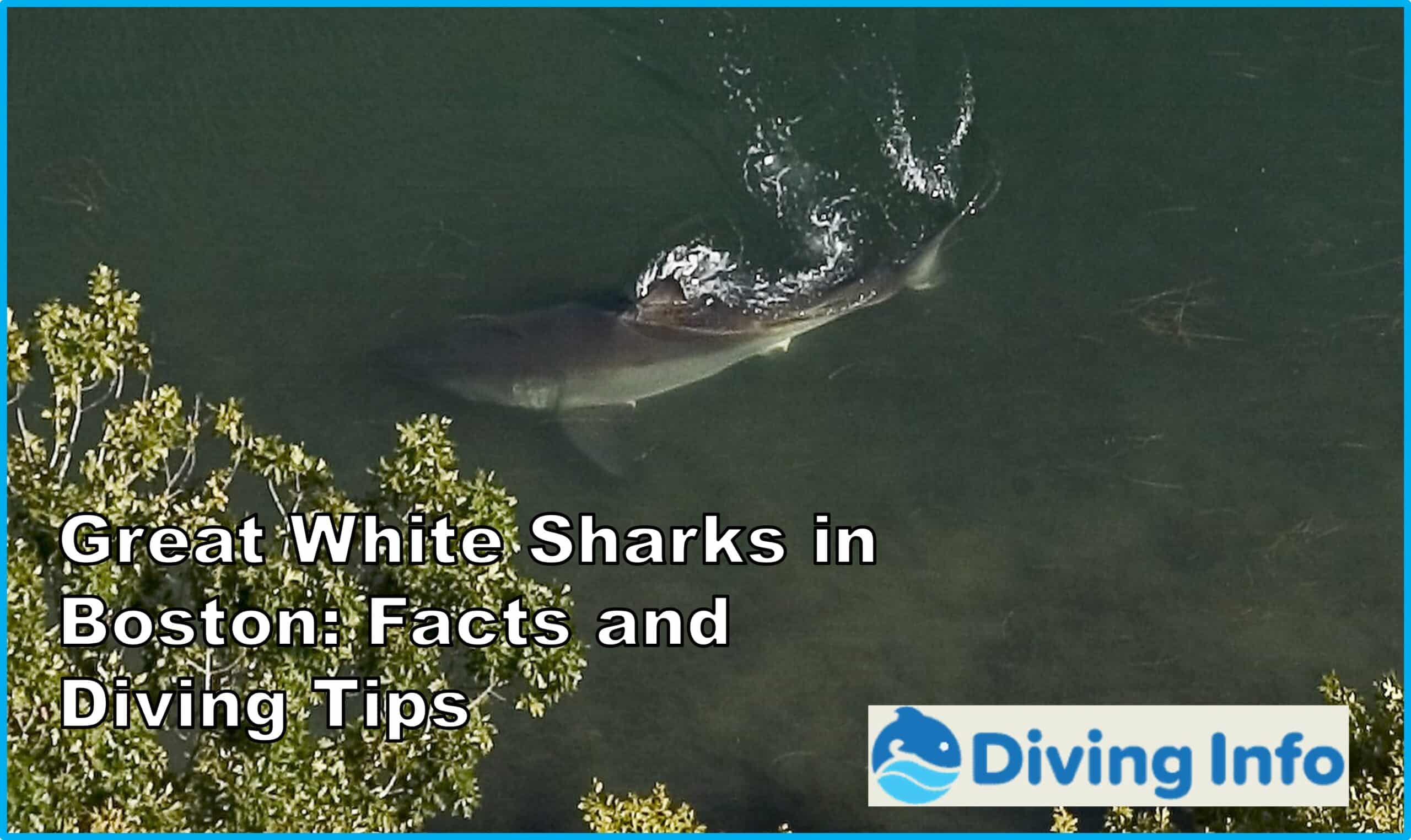*This post may contain affiliate links. As an Amazon Associate we earn from qualifying purchases.
Are you ready to come face-to-face with one of the ocean’s most fascinating and feared species? Look no further than Boston, Massachusetts, where thousands of great white sharks visit each year. With tracking tags confirming their presence and a plentiful food source of seals, these magnificent creatures make their way to the area when waters warm up in July.
In this article, we will provide you with the facts about great white sharks in Boston and give you tips on how to safely and responsibly dive with them. As you gear up for an unforgettable experience, it’s important to understand the presence of great white sharks in Massachusetts Bay. These sharks are known to congregate in the area due to the abundance of seals, their primary food source. They typically arrive in July and stay until October before migrating further south for the winter.
With their unmistakable dorsal fin and powerful jaws, great white sharks are a force to be reckoned with. But with proper preparation and knowledge, you can safely observe them in their natural habitat. So, what are you waiting for? Let’s dive in and discover the facts and tips you need to know before encountering these majestic creatures.
You may be interested in my other articles about Where do you find great white sharks or Cage dive great white sharks Australia.
Presence in Massachusetts Bay
You may encounter great white sharks in Boston’s Massachusetts Bay as they’re known to frequent the area during the warmer months. The seal population in the bay provides a food source for these predators, making it an ideal location for them to hunt. While they generally don’t target humans as prey, beach goers should be aware of the potential risk and take necessary precautions when entering the water.
Uncover interesting facts about shark adaptations.
It’s important to remember that great white sharks are a protected species in Massachusetts and should be observed from a safe distance. If you do encounter one, remain calm and slowly back away. Don’t attempt to touch or feed the shark, as this can be dangerous for both you and the animal.
By following these guidelines, you can safely enjoy the beauty and majesty of these incredible creatures in their natural habitat. Be informed about the necessary equipment for diving with sharks in a cage.
Preferred Time of Year
Curious about when to plan your next diving trip in Massachusetts Bay? Wondering what time of year you might have the best chance of encountering these apex predators?
Great white sharks are more likely to be present in Massachusetts Bay between July and August, when sea temperatures rise above 12°C (53.6°F). Water temperature stays above 16°C (60.8°F) in July through to September, with a high of around 21°C (69.8°F) in August time, making it a preferred habitat for great white sharks.
If you’re looking to dive with great white sharks in Boston, the best beaches to visit are those in close proximity to seal colonies. Massachusetts has both Gray and Harbour seals, and some stay year round, whilst others migrate north, which is a food source for great white sharks.
So, if you’re hoping to catch a glimpse of these predators, it’s best to plan your diving trip during the summer months when the seal population is at its highest. Keep in mind that great white sharks are a protected species in Massachusetts, and it’s important to follow all scuba diving safety protocols when diving with them.
Diving with Great Whites
If planning a diving trip in Massachusetts Bay, it’s important to be aware of the safety protocols when encountering these apex predators. Great white sharks are known to be curious and may approach divers, but they’re still wild animals and should be treated with caution.
Diving with great white sharks should only be attempted by experienced divers who’ve received specialized training and certification. If interested in diving with great white sharks, Guadalupe Island tours offer some of the best opportunities to encounter these magnificent creatures.
These tours typically include experienced guides who are familiar with the behavior of great whites and can help ensure a safe and enjoyable dive. However, even with experienced guides, diving with great white sharks is still a high-risk activity and should only be attempted by those who’re properly trained and prepared.
Always follow diving safety protocols and listen to the guidance of your experienced guides to ensure a safe and unforgettable diving experience.
Experience and Tips
The author of the article is an experienced scuba diver and diving instructor. He has had the opportunity to dive with great white sharks in different locations and shares some tips for those interested in diving with these apex predators.
Firstly, he emphasizes the importance of respecting great white sharks and their habitat. He encourages scuba divers to participate in shark conservation efforts and to learn more about these fascinating creatures.
Secondly, he advises scuba divers to choose reputable scuba diving destinations that prioritize safety and sustainability. It’s crucial to dive with experienced guides who can ensure a safe and respectful interaction with great white sharks.


